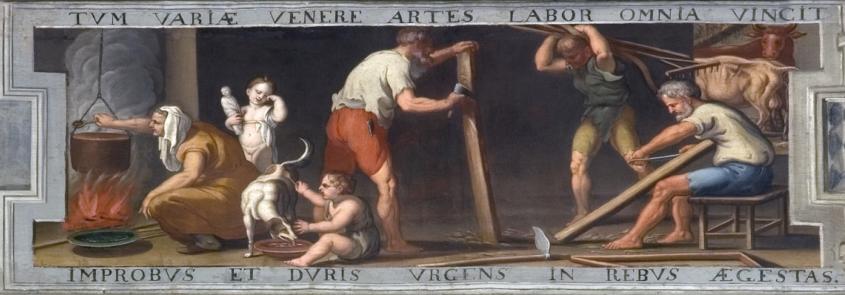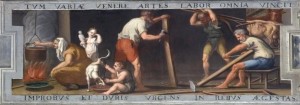
Weekly vocabulary lists, practice sentences, and yet another paradigm are the constant companions of the Latin student. And when you start Latin in third grade, this goes on for years. As a Latin teacher now, I love this idea! Spending years helping students master Latin grammar is my idea of fun. Looking back to when I was a Latin student, though, my devotion to Latin did not fully develop until, with my grammar textbooks behind me, I started reading Latin literature.
Don’t get the wrong idea – we can read Latin literature and study our paradigms at the same time. In fact, at Wilson Hill Academy, we strive to read the writings of authentic Latin authors in every level of our Latin program. But what a thrill it is to put the grammar textbook aside and focus on reading actual Latin literature. This is what WHA’s Latin literature survey course Latin Readings is all about, and we’ve designed the class to benefit all students – including adults.
We have synched our Latin Readings with The Great Conversation classes to achieve as much overlap as possible, so that students who are studying a Latin author in TGC are also reading portions of the text in the original Latin. We read Latin as literature, discussing character and theme and worldview along with those special uses of the ablative you learned so diligently during your grammar years.
In Latin Readings, students explore Latin writings from the classical era all the way to modern times. We read selections from Cicero, Virgil, Augustine, Bede, Martin Luther, Sir Isaac Newton, and more. And while no one is expected to start the year as a perfect Latin translator, everyone finishes stronger.
The scheduling for this class is unique. Meetings are held in the evenings, so that homeschoolers, brick-and-mortar schoolers, international students, and even parents and teachers who want to grow in their translation skills are encouraged to attend. When evening meetings are inconvenient, extensive use of a discussion forum and recorded archives will keep all students advancing. Independent study options for students of all ages are also available with our expert teacher.
I have taught a lot of Latin over the years, and I have seen too many students drop out of Latin once they have finished their grammar – they are moving on just when it is getting really good! I hope you will not make that mistake.
Submitted by Joanna Hensley,WHA Latin instructor

